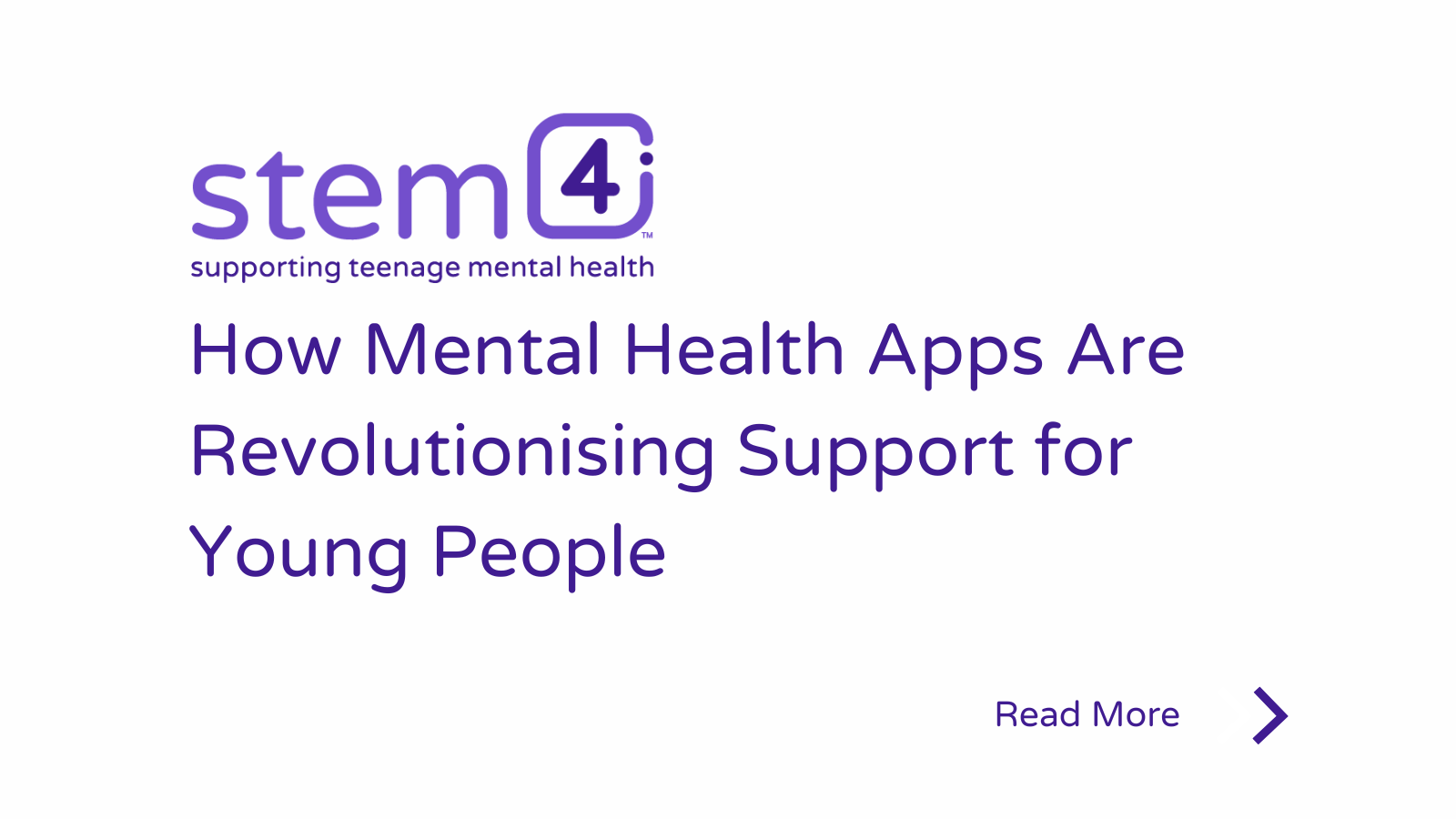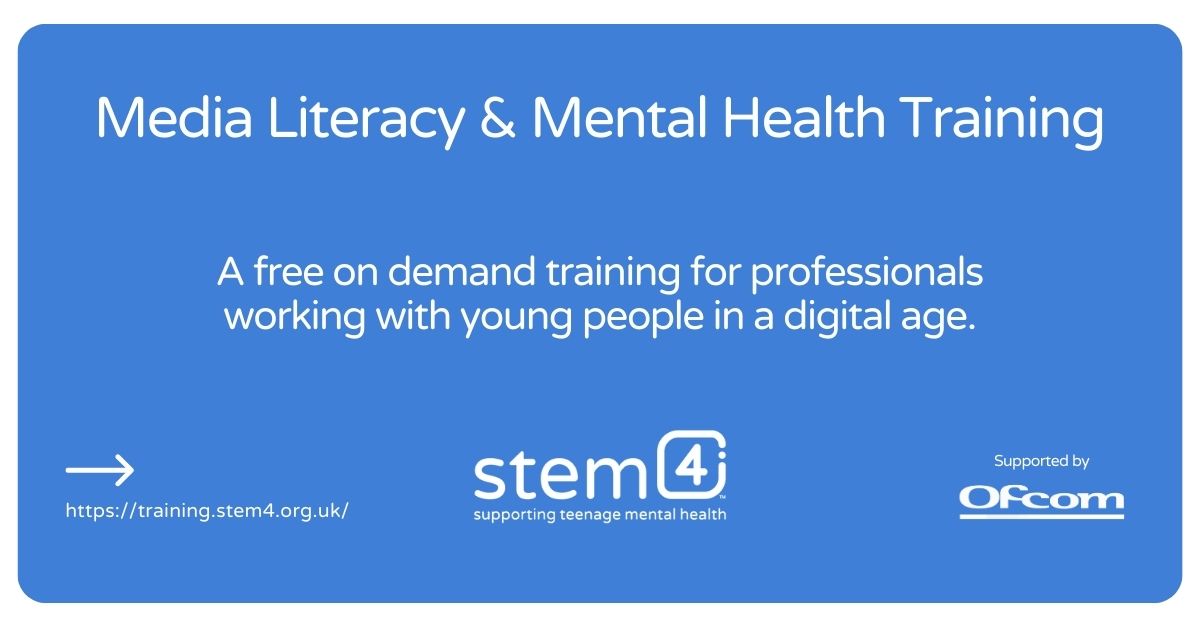
Last week an article was published which made the dangerous and unhelpful claim that mental health apps do more harm than good, for people struggling with their mental health.
We disagree.
In 2015 stem4 launched our first mental health app, Calm Harm (which has since been downloaded over 3 million times), to provide an evidence-based tool that could provide immediate help, that was created by a trusted clinical source, and as a response to the lack of mental health support young people were receiving from traditional mental health services.
This app was developed by Dr Nihara Krause, a Consultant Clinical Psychologist, in collaboration with young people, using strategies from Dialectical Behaviour Therapy (DBT) to help users learn to identify and manage their ‘emotional mind’, plus teaching impulse control, emotional regulation and how to track the underlying triggers to harmful urges.
While this app alone is not a substitute for the assessment and individualised treatment by a health/mental health professional, it has been proven to be effective in helping young people resist the urge to self-harm.
- Clear Fear– evidence-based app to manage symptoms of anxiety
- Move Mood– evidence-based app manage low mood and depression
- Worth Warrior– evidence-based app to help young people manage low self-worth, poor body image and related eating disorders
- Combined Minds– evidence-based app to help families and friends provide mental health support
stem4’s app portfolio has had over 4 million downloads to date, and has built-in efficacy monitoring, to keep an eye on how effective the app is for users, while preserving their anonymity. For example, over 90% of activities carried out in Calm Harm and Clear Fear are reported by users to have helped.
Process of Development
Each of these apps has been developed using Dr Krause’s clinical expertise as a Consultant Clinical Psychologist, as well as a team of clinicians who contribute to the final safety case. The Apps utilise effective strategies from Cognitive Behavioural Therapy (CBT) and other evidenced forms of CBT which include Behavioural Activation Therapy (BAT) and Dialectical Behaviour Therapy(BAT) as well as the CBT protocol specifically for eating disorders CBT-E
None of the apps collect personally identifiable data and all undergo the rigorous Digital Technology Assessment Criteria (DTAC) assessment and are on the Organisation for the Review and Care Apps library (ORCHA). In addition, the stem4 digital portfolio is proud to announce that our apps are the only apps created in the UK that have received certification for compliance with the Information Commissioner’s Age Appropriate Design Code (AADC).
Impact
All apps collect anonymised impact data and show 85-93% efficacy in symptom reduction at each use. In addition, one of the apps is awaiting peer review for publication in a prestigious international journal, and another is being evaluated in an NHS ethics committee approved study, in terms of its efficacy.
How many people have these apps supported
Without the existence of these mental health apps, there would have been over 4 million people who would not have been able to access high quality mental health support, accessible on their smartphone, two thirds of whom* have told us they were not receiving professional support when they downloaded the app.
*This is generalised from the apps that directly ask users this question: Calm Harm, Move Mood and Worth Warrior.
A question of accessibility
There is a remaining barrier of accessibility for young people who do not have access to a smartphone or a personal device.
stem4 is committed to advancing equality, making sure that there are no barriers to accessing mental health support, and will be running a webinar 29th February 12-1:30pm to discuss with professionals how digital inclusion can be further promoted. Register HERE.
Calm Cards transfer the activities from the clinician-developed app Calm Harm into a physical form, enabling young people to manage the urge to self-harm in places where phones are banned or unavailable, for example, schools, hospitals, youth centres and even in the home.
If you work with young people and want to learn more about how to speak to them about their online lives, complete stem4’s Media Literacy & Mental Health Training. Complete the entire CPD accredited training today on demand sign-up HERE. This training will be offered for free until March 2024.
Feel free to copy and paste this caption:
I/We have completed @stem4org ‘s Media Literacy and Mental Health training. I/We are looking forward to using the knowledge and tools gained in this training to help promote positive mental health in young media in a digital age. This training is free until March 2024, you can complete it on demand at https://training.stem4.org.uk/.
Complete the training and share it with your network with our social media pack (Linkedin, Twitter and Instagram) click HERE.



















